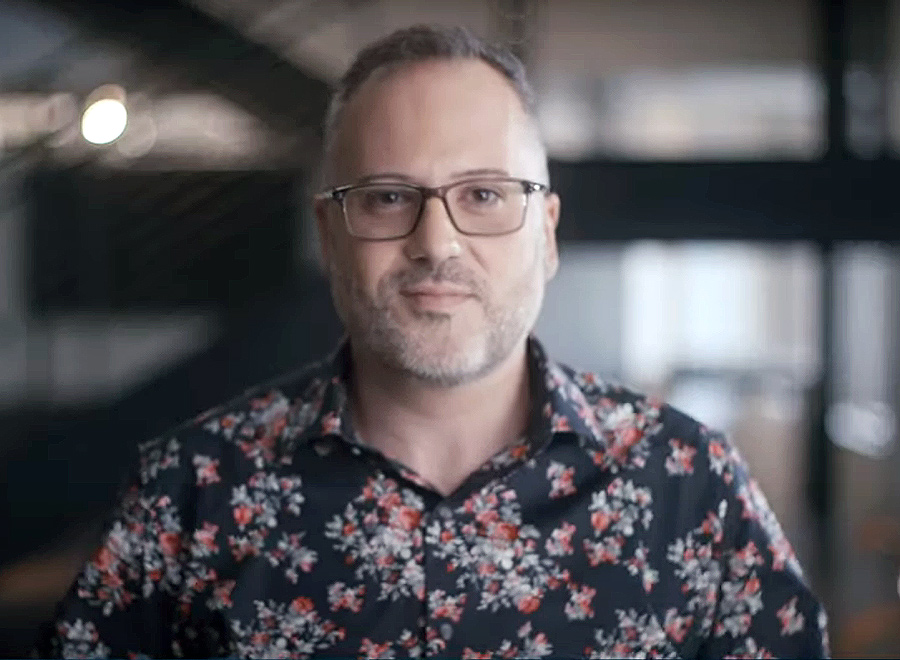
WE’VE ACHIEVED MILLION-DOLLAR RESULTS
Nursing Home Abuse
Deciding to place a loved one in a nursing home or assisted living facility can be difficult. You’re putting your family member’s life and well-being in the hands of strangers and hoping they will take as much care of your loved one as you did. Most of the time your hopes are justified, but sometimes they are not.
Residents of Michigan nursing homes and assisted living facilities have legal rights when they suffer injuries because of negligence or medical malpractice. Their families have rights in cases of wrongful death. If you believe your loved one has been injured because of the actions of someone in their care facility, contact a nursing home abuse attorney at Goodman Acker P.C. to discuss your case.
Our attorneys know that these cases are especially distressing because your loved one was injured, and you feel betrayed by the very people you trusted to care for them. Goodman Acker P.C. will help you and your family member get the compensation you deserve for the harm done to you. Contact us right away to review your case.
How We Can Help
According to the State of Michigan, more than 440 licensed nursing homes and assisted living facilities operate in our state. Multiple agencies are responsible for overseeing these facilities, including the State Department of Licensing, the Center for Medicare and Medicaid Services (CMS), and private agencies. There are state statutes that regulate how elder care facilities must operate.
Despite this, thousands of nursing home residents are abused or neglected in some way each year. Much of this goes unreported because residents are afraid to report the neglect for fear of retaliation or family members do not know where or how to report it.
At Goodman Acker P.C., we know that proving abuse or neglect is difficult. Making your case in court requires documentation of injuries, witness statements, photographs, or videos that the facility may not want to give you. Our attorneys can obtain these documents for you. We want to see your family member receive fair treatment for their injuries, and our experienced legal team knows how to make that happen.
Why Hire Us?
Goodman Acker P.C. serves injured and disabled clients in Southfield and throughout Michigan. Our experienced attorneys have won million-dollar verdicts and settlements for our clients both in and out of court. We’re just as proud of our community involvement that seeks to bring justice to all individuals, wherever they may be.
The attorneys at Goodman Acker P.C. have been handling cases and getting maximum settlements for our clients for more than 25 years. This dedication has led to the satisfaction of countless clients. No matter what our clients need, we do our very best to help them.
Founding partner Barry J. Goodman has been practicing law since 1977. He has spent his professional career keeping the courthouse open for all victims seeking justice. A zealous advocate for his own clients, Goodman sees his duty as a Michigan nursing home attorney encompassing all residents of Michigan. He has been active in politics, supporting candidates who want to bring equal access to justice to everyone in the state.
The legal team of Goodman Acker P.C. brings top-quality legal counsel and research to our clients. We advocate tirelessly for all our cases in every type of case. We will do our best for you both in and out of court to give you the justice you deserve.
For a free consultation, call 248-286-8100 or make an appointment online.
Recognizing Nursing Home Negligence
If it becomes necessary to take your family member to a nursing home or assisted living facility, you expect it to be homelike and to provide a safe environment for your loved one. You want it to be caring and have the staff and caregivers who can give your family member the attention they need to thrive in their sunset years.
Most facilities intend to provide these services, but many of them fall short of their intentions. Recent issues cited by nursing homes have included staffing shortages, lack of resources, and increasing health issues among the elderly since COVID. However, these problems cannot excuse neglect and malpractice when it occurs.
A Primer on Negligence
Proving negligence in elderly individuals can be difficult because of their particular health needs. Before your attorney can make a case for negligence, they must demonstrate four separate steps:
- The facility must have a duty to act in a certain way. In Michigan, this is laid out in the Public Health Code and the Licensing and Regulatory Affairs department.
- The facility must have failed to act in the required way and have known or been reasonably certain that the breach would cause harm to the residents.
- The breach of duty must have caused harm. In some cases, the harm must also have been reasonably foreseeable. In other words, whatever the facility did or failed to do, it should have been obvious that it might cause an injury.
- There must have been harm to someone. Negligence lawsuits cannot be filed because something “might have” happened. Medical error cases may be justified in these situations.
For instance, if a facility is understaffed and a resident falls out of bed and lies on the floor for an hour and suffers a broken hip because nobody could check on them, this would be a breach of the facility’s duty to have adequate staff members on hand to monitor residents. Clearly, lacking sufficient staff to monitor residents would harm or exacerbate injuries. Therefore, in this case, negligence could be proven.
Nursing Home Abuse
All types of abuse occur in nursing homes, just as they occur elsewhere. A report by the National Center for Victims of Crime (posted on the Nursing Home Abuse website) stated that in 2018:
- 29% reported physical abuse
- 22% reported resident-on-resident abuse (physical or sexual)
- 21% reported psychological abuse
- 14% reported gross neglect
- 7% reported sexual abuse
- 7% reported financial exploitation.
Family and friends may be the first reporters of abuse and neglect. However, before jumping to conclusions, you should know what you are looking for and what your family member is telling you, or not telling you.
- Physical abuse is any contact that harms or injures the resident. It can include hitting, pushing, slapping, or punching. It may also include overuse of restraints, pushing a wheelchair-bound resident too fast, or leaving the resident in an uncomfortable position in bed.
- Psychological or emotional abuse is any non-physical act that frightens or harasses the resident. Shouting, screaming, insulting, or name-calling can be psychological abuse. Threatening to withhold food, water, or medication, lying to the resident about visits or phone calls, deliberate isolation are all types of psychological abuse.
- Sexual abuse occurs to all genders and is perpetrated by both males and females. It can include rape, fondling, forcible penetration with the hands or objects, and also unnecessary bathing, diaper or clothing changes, peeping, stalking, photographing, inappropriate remarks, and other sexual conduct.
- Financial abuse ranges from administrative abuse (such as diversion of benefits, false charges to the bill, and excessive rent increases) to theft from the resident’s rooms.
You should notify law enforcement immediately if you suspect any of these types of abuse. You should also contact a legal professional to protect your rights and those of your family member.
Neglect
Neglect is a particular subset of both abuse and negligence. Neglect means that things are being overlooked or not being done, sometimes deliberately, often because of carelessness or understaffing. Neglect is a form of abuse in patients who are dependent on caregivers for their basic needs since they have no other recourse. Some signs of neglect you should report immediately include the following:
- Untreated injuries. Not all injuries are deliberately inflicted. Elderly people are prone to falls and are slow to heal. The facility should treat all injuries promptly and report them according to state guidelines. If the resident refuses treatment, it should be noted, and the responsible party (such as a family member) should be notified.
- Pressure injuries. Pressure wounds and bedsores, resulting from an immobile patient being left in one position for too long, can develop in as little as two hours. They can also be caused by diabetes, high blood pressure, and circulatory disease. The facility should notice these immediately and treat them promptly to avoid sepsis and gangrene.
- Malnutrition and dehydration. Elderly people are at risk for both malnutrition and dehydration. Patients with chronic diseases may lack an appetite, and some medications make eating difficult. Patients who need assistance eating cannot be rushed through meals. In hot or very cold weather, patients need extra water.
- Age-related depression is very common, especially among the recently widowed and those in the early stages of dementia. Residents need to be encouraged to participate in recreation, not allowed to sit in their rooms, even if they “want to be alone.”
Recognizing these types of abuse can be difficult, even for family members. Elderly people have thin skin that bruises easily and heals slowly. Some medications, such as blood thinners, make bruising worse. When older people are incontinent, they may be embarrassed or unwilling to let caregivers know. As a result, they sit for prolonged periods in wet undergarments, leading to rashes and infections.
Any of these may be signs of negligence and grounds for legal action. However, there are steps that must be taken before filing a lawsuit if you suspect the perpetrator is an employee of the nursing home.
Frequently Asked Questions
Before you contact Goodman Acker P.C. for your consultation, you may have other questions. These are some of the most frequent questions we hear from our clients.
In Michigan, the statute of limitations for personal injury cases is three years from the date of injury. If the facility was a medical facility, you have only two years from the date of injury. Seek legal advice to determine if the facility was “medical” or not as defined by the laws.
Michigan has different reporting requirements depending on where the alleged abuse took place. For private residences or unlicensed facilities, contact the Michigan Department of Health & Human Services (MDHHS) Adult Protective Services at 855-444-3911.
If you believe the abuse took place in a licensed facility by another resident or by an employee, contact the Attorney General Health Care Fraud Hotline at 800-24-ABUSE (800-242-2873) and the Michigan Licensing and Regulatory Affairs (LARA) Bureau of Community and Health Systems Abuse Hotline at 800-882-6006.
One of the best ways to avoid abuse and neglect is to let potential abusers know you’re keeping a record of them. Michigan is one of the few states that allows family members to place cameras in their family members’ rooms if they follow certain legal requirements. Contact Goodman Acker P.C. to learn how to place a monitoring device.
Contact a Southfield Nursing Home Abuse Lawyer at Goodman Acker Today
If you need assistance with a nursing home injury, the attorneys at Goodman Acker P.C. can help you, no matter how complex it is. We handle cases on a contingency fee basis, meaning there are no out-of-pocket fees unless we recover compensation for our client.
We know that our clients don’t just want a monetary settlement. They want to feel that they have gotten the best care from their attorneys and had their case heard by those who matter in court. We know that both compensation and justice are important.
When it’s time to contact a nursing home abuse attorney, call Goodman Acker P.C. We will ensure your case is thoroughly investigated and meets all the deadlines, so you get just compensation for your claim. Call us at 248-286-8100 to make an appointment to discuss your options.



